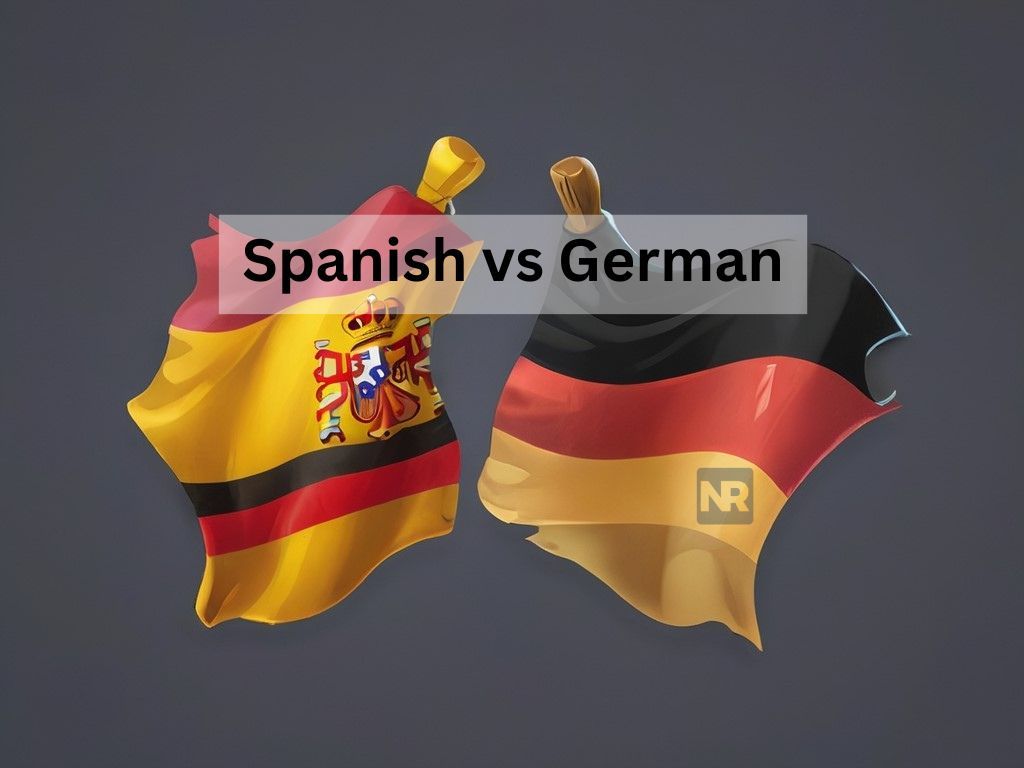
By: Admin
Feb 24, 2024
Spanish Vs German: Choosing The Right Language For You
In our world that is becoming more interconnected by the day, being able to speak multiple languages is a valuable asse. Among the plethora of languages available, Spanish and German stand out as influential tongues with global significance. Deciding which language to learn can be a daunting task, but with careful consideration of various factors, you can make an informed choice tailored to your interests, goals, and circumstances.
The Case for Spanish
Spanish, with approximately 500 million speakers worldwide, is one of the most widely spoken languages globally. It serves as the official language in 20 countries, predominantly across Latin America, making it a vibrant and culturally rich language to learn. Spanish also holds significant sway in the United States, where it ranks as the second most spoken language.
Accessibility and Ease of Learning
For English speakers, Spanish often presents as a more accessible language to learn due to its straightforward grammar, phonetic pronunciation, and abundance of cognates shared with English. The learning resources available, including language apps, online courses, and immersion programs, make mastering Spanish an achievable goal for many learners.
Cultural and Professional Opportunities
Proficiency in Spanish opens doors to diverse cultural experiences, travel opportunities, and professional pathways. Industries such as tourism, hospitality, international business, and education greatly value employees with Spanish language skills. Moreover, the ability to communicate in Spanish fosters deeper connections with Spanish-speaking communities and enhances cross-cultural understanding.
The Appeal of German
German, while less widely spoken than Spanish with around 100 million speakers, holds considerable importance in Europe and beyond. As the official language of Germany, Austria, Switzerland, and Liechtenstein, German plays a pivotal role in various sectors, including technology, engineering, automotive manufacturing, and academia.
Linguistic Challenges and Rewards
German's reputation for complex grammar and compound words may intimidate some learners initially. However, delving into the intricacies of the language offers a profound understanding of its structure and nuances. With diligence and practice, learners can navigate German grammar rules and develop proficiency in speaking, writing, and understanding the language.
Professional Advantages
Proficiency in German can unlock a plethora of professional opportunities, particularly in industries where German expertise is highly valued. Fields such as engineering, science, research, and international trade often seek professionals with German language skills. Additionally, Germany's robust economy and innovation-driven sectors offer promising career prospects for bilingual individuals.
Factors to Consider in Your Decision
Personal Interests and Goals
Consider your interests, career aspirations, and personal connections when choosing between Spanish and German. Reflect on which language aligns best with your passions, travel plans, and cultural affinities.
Geographic Relevance
Evaluate the regions where each language is spoken and assess their relevance to your travel, work, or living arrangements. Spanish may be more beneficial for exploring Latin America, while German proficiency may open doors in Europe and beyond.
Economic and Professional Opportunities
Research the industries and job markets where Spanish or German language skills are in demand. Identify how language proficiency can enhance your career prospects and contribute to your professional growth and development.
Cultural Enrichment
Consider the cultural richness and diversity associated with each language. Explore literature, music, cinema, and cuisine from Spanish-speaking or German-speaking regions to deepen your appreciation for their cultural heritage.
Conclusion: Making Your Decision
Ultimately, the choice between learning Spanish and German rests on your individual preferences, goals, and circumstances. Take the time to weigh the linguistic, cultural, and professional aspects of each language and evaluate how they align with your aspirations and interests.
Whether you opt for the melodic cadence of Spanish or the precise structure of German, embarking on a language-learning journey is a fulfilling and enriching experience. Embrace the challenges, celebrate the milestones, and immerse yourself in the beauty of linguistic diversity.
Whichever path you choose, remember that language learning is a journey of discovery, connection, and personal growth. ¡Buena suerte! Viel Glück! (Good luck!)
Leave a Comment
LATEST POSTS

Eyeshadow In Spanish: Embrace The Hottest Colors And Techniques

Corporette: Empowering Professional Women

Deciphering The Enigma: Unveiling The Secrets Of Iamnobody89757

The Unforgettable Styles Of Bob Mackie Fashions

0960 What Network? An Inside And Out Examination

Mother's Day In Uae: A Genuine Festival Of Parenthood
